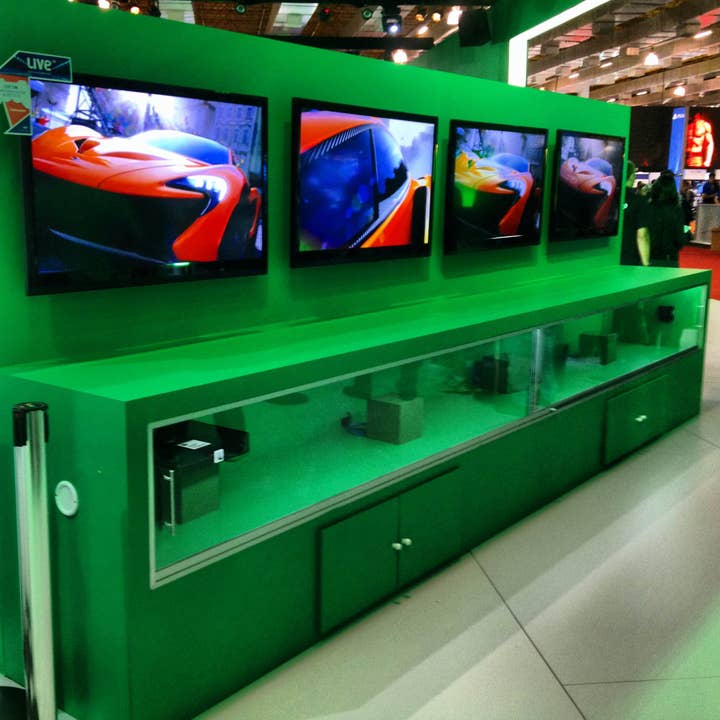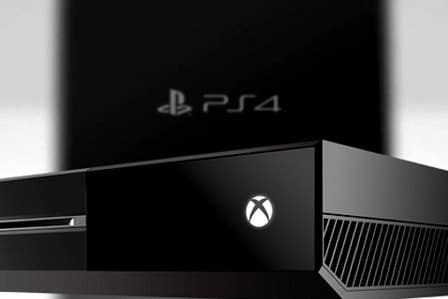Brazil: New Consoles Have It All To Play For
It may have the cheaper console, but Microsoft again fumbled its marketing message at the Brasil Game Show
You'd be forgiven for thinking that Brazil is purely a console market when well over half of the floor of this year's Brasil Game Show is dedicated to next and current generation hardware.
Despite the astonishingly high prices for the next generation consoles - the PS4 will be priced around $1,840 when it launches on November 29, the Xbox One $1,012 a week earlier - the hunger for new technology here is as palpable as it is in the European and US markets. Import tax may be assaulting the consumer's wallet, but even in this price-hostile environment surely we can finally bury the idea that consoles are in any way doomed because tablets and mobile hardware are more popular.
It's an understatement to say the Brasil Game Show is big. The numbers do the talking. Over 150,000 people are expected over four public days here. That's not close to Gamescom's whopping 340,000 attendees but it's closing on ChinaJoy's 200,000. It's already bigger than Eurogamer's EGX in the UK and Penny Arcade's PAX in the US. To refer to it as an emerging market is offensive.
"Microsoft's booth looked barren, with new technology in sparse supply. All green branding but no jet black hardware"
When Sony first announced the price of the PlayStation 4 in the region it looked like the hardware could be dead on arrival. With crippling import taxes accounting for 61 per cent of the mark-up, commentators saw an open goal for Microsoft, with the Xbox One at a much less expensive, but still considerable price-tag. Surely the Brasil Games Show, with its huge audience, would cement that theory.
But when the show opened on day one for the press and business crowd, there were only a handful of Xbox One consoles playable. Microsoft's booth looked barren, with new technology in sparse supply. The space had been reserved, but the technology was missing in action - all green branding but no jet-black hardware. Forza 5, one of the system's most prominent launch titles, was only present with a trailer and a promotional Mustang. Having your photograph taken with a cool looking car is fine, but it's nothing compared to 20 minutes playing the latest build. Microsoft staff stood around twiddling their thumbs instead of Xbox One controllers. The single Xbox One game playable on the opening day was Killer Instinct. What on earth forced the decision to go with a rebooted fighter over the company's flagship racing game?

The situation wasn't any better for Microsoft's third-party exclusives either. I can't imagine Capcom or Crytek were happy with Dead Rising 3 and Ryse's screens showing common trailers with empty boxes underneath. The space wasn't even asking for a lot to fill it - just five units per game - but Microsoft just couldn't deliver. Fill that space with something, anything. Nothing looks worse than empty shelves.
Granted, this was on day one, where no public were allowed through the doors. But this was the day to get the message across through invited press, the media, bloggers, the YouTube broadcasters and the national TV, as well as the day to impress Microsoft's industry peers. Unfortunately for Microsoft the message was fumbled badly, a huge missed opportunity only weeks before launch.
The second day was a little better for Microsoft, with a few more Xbox Ones installed on the booth. But it really was only a handful - there was a demo of Kinect Sports Rivals running on just a single machine, and Forza was blessed with three working consoles. Three! But again, there were no consoles for partners. I'd imagine that the developers of Ryse and Dead Rising 3 were rightly pissed that their exclusives were all but abandoned in front of tens of thousands of consumers.
Sony's stand, on the other hand, painted a clear picture of a company ready to launch in just over a month. Killzone: Shadow Fall had the biggest presence and the crowds to go with it, but none of the smaller games were sacrificed in favour of first-party, or the idea next-gen has to be about AAA. It's a policy that's proving strong for Sony in other regions, and it's no different here. Octodad, Contrast, Knack, the delayed Drive Club and even third-party games Assassin's Creed: Black Flag and Blacklight Retribution were all shown and received love. Add to that an embarrassment of riches for the Vita and PlayStation 3, including Angry Birds, Diablo III, The Last of Us, Diggs Nightcrawler, Batman: Arkham Origins Blackgate, and Sony had all bases covered. In contrast, Microsoft's Xbox 360 section on the show floor featured nothing new at all. Having Gears of War: Judgement and Halo 4 playable just seemed to highlight that there are no Halo and Gears titles due for the Xbox One any time soon.
"Having a cheaper console than your competitor isn't an advantage if people can't sample the games"
If the absence of new Xbox One consoles was only a problem with day one, the press would have walked away unable to evangelise the games. For it to happen on day two as well, that's the consumer walking away disappointed when they should have been topping up their savings jar in anticipation. Having a cheaper console than your competitor isn't an advantage if people can't sample the games and experience the hardware.
But Microsoft's fumble in the market took nothing away from the general excitement and vibrancy of the Brasil Game Show. It's relaxed and welcoming, with even the most stuffy of execs undoing the top button and going with the flow. Call me a hippy, but this was one of the most welcoming video game shows I've ever been too, and I'm a black-hearted cynic who's been traipsing around soulless exhibitions centres for the past 13 years.
With publishers clearly lifted by the next-gen rising tide, console gaming is back like it never went away. It seems that even the willy-waving of days gone by has been put to one side. Electronic Arts and Warner Bros. had teamed up tactically to share booths at BGS, so Need for Speed and Battlefield 4 sat comfortably alongside Dying Light and Batman - a cosy partnership that didn't look out of place. Maybe Warner Bros. should consider buying EA and take their game up a considerable notch.
EA's other booth - dedicated to FIFA 14 - was rammed, as you'd expect from a nation that worships football. Konami's Pro Evolution Soccer series was all but pushed out with only a minor showing on a partner booth - odd when you consider how much more popular PES is in Brazil, making Konami the most successful console publisher in the region.
Elsewhere, Ubisoft had impressive branding for the recently-delayed Watch Dogs, but the game was only demoed behind closed doors. Instead, its two booths were dedicated to Assassin's Creed: Black Flag and the ubiquitous Just Dance. Assassin's Creed was even running openly on PlayStation 4 dev kits, which either showed a relaxed approached to presentation or someone didn't get a memo.
It's also telling that the first bunch of ticket holders who arrived 24 hours before the show to begin queuing were dressed in Call of Duty t-shirts. What gaming show doesn't have a passionate, vocal and borderline uncontrollable Call of Duty tournament? This year Call of Duty: Ghosts goes up against Battlefield 4, another booth that was swamped with itchy trigger fingers and backwards baseball caps.
"When League of Legends starts broadcasting every other booth looks on in quiet envy. This is a game that sucks the air out of the room"
Was BGS purely a console show? Not at all, but the more local companies, the smaller tablet developers, and the usual technology and peripheral manufacturers occupied a support role this year. Kingston, Razr, Corsair, Intel and Nvidia relied as much on hotpants and freebies to draw attention as high-end PC gaming favourites.
At least one company was conspicuous by its absence. Wargaming didn't have a presence at Brasil Game Show, which is surprising when you consider how ubiquitous the World of Tanks business has become, associated with domination in free-to-play and a fearless advance across new territories. But this is one territory not yet on the map in Viktor Kislyi's war room, or at least the invasion is on hold until those difficult Brazilian bureaucratic business issues can be dealt with.
But where Wargaming might not yet feel comfortable, another free-to-play giant dominated it's own chunk of the show floor. Riot's League of Legends stretched out across three stages with a tournament, presentation and rock band bringing the ruckus. And when League of Legends starts broadcasting every other booth looks on in quiet envy. This is a game that sucks the air out of the room, with surrounding booths busy simply because the crowds can't physically get any closer to the party.
So Brasil Game show is a raging success, mirroring the big bucks and pumping pulse of the console business in 2013. It's clear that if you haven't got a presence in Brazil, you're missing a huge market. And just like the console business in 2013, there's still the impression that Microsoft isn't nearly as prepared for the next generation as its competitor, despite some distinct advantages. The company has done a lot to rebuild its marketing image after the clumsy Xbox One reveal at E3, but it has to work hard in every territory it's launching in, not just the ones in which it feels the most comfortable.
We'll have more from the Brasil Game Show this week, including a look at how US and European businesses are attempting to expand in the market, and an interview with Brazil's biggest video game development studio.

